Brick Cracks, House Foundation Repair, Damage, and More
Important Point
Brick buildings provide the impression of solid structures. With so many landowners embracing the “exposed brick” appearance for their homes, some issues are unavoidable.
Cracked bricks are a typical problem with brick walls. While cracked brickwork may not usually signify major structural problems, it can make your property susceptible to water damage and mold.
Brick walls develop fractures in two ways: through natural disasters such as earthquakes or through the passage of time. The majority of the time, cracks in your brick wall can be repaired, so it shouldn’t be a major issue.
However, it is not a problem to be underestimated because fractures tend to spread and grow in size quickly.
Causes of Cracks in Brick Walls
Here, the causes of cracks in brick walls are as follows.
- Soil Subsidence
- Climate and Seasonal Changes
- Building Materials Corrode and Deteriorate
- Construction Works in Your Area
- Regions Where Soils Are Highly Reactive
- House Surrounded by Trees
1. Soil Subsidence
It all starts with the building of the house. Soil excavation has taken place in order to lay the foundations of a building.
The ground settles over time, and the foundation of the home slides somewhat. This movement can generate minor vertical cracks, which are usually not an issue.
Depending on the type of soil on which your house is built, your house may endure more drastic movement, which can cause significant damage.
Natural calamities such as earthquakes, floods, and hurricanes can severely destroy your home’s foundation.
2. Climate and Seasonal Changes
The materials used to construct our homes respond quite a bit to climatic and seasonal fluctuations. Long periods of drought, as well as rain and water, can cause damage to the walls and foundations.
3. Building Materials Corrode and Deteriorate
Building materials do not last indefinitely. Weather, gravity, and poor upkeep all have an ongoing impact on our structures.
Building reinforcement is prone to corrosion, especially if the concrete base is not adequately installed.
Foundation fissures expose the steel reinforcement to moisture, which can cause rusting and lead to brick wall cracks.
4. Construction Works in Your Area
If you live near a building site, your brick walls may be affected. Heavy machinery, excavation, and digging may cause your brick walls to break.
5. Regions Where Soils are Highly Reactive
Soils like clay expand when wet and split and shrink when dry. You may notice minor cracks in your walls if your home is built on clay soil.
Unfortunately, these cracks are usually cosmetic in nature and can be easily repaired. Cracks larger than 3 mm should be taken seriously, and an expert should be called to evaluate your home or building.
6. House Surrounded by Trees
Having large trees close to your home might cause brick walls to crumble. As a result, their root systems are invasive and can damage your home’s foundation. In addition, they require a lot of water, which can alter soil moisture.
Also, cracks in walls can be caused by dry soils. Small brick cracks are typical and do not signal an issue with the foundation. This is due to the fact that brick has a natural tendency to expand.
Large brick cracks on your house’s facade (or in your concrete slab foundation) may signal that you need foundation repair. It’s not a good sign if the fractures in your brick are bigger at the top than they are at the bottom.
It’s possible that you’ll need foundation repair. This is because fissures like this typically indicate that your home’s foundation is shifting.
Also Read: Transforming Your Home: Creative Red Brick Fireplace Ideas
Do Cracks in Brick Mean Foundation Problems?
Bricks are composed of inflexible baked clay that has been crushed. As a result, when your house settles or due to external forces, they’re more likely to crack.
Small cracks in brick walls are widespread and usually innocuous. Large brick cracks on the outside of your house, on the other hand, may signal a foundation problem.
- Soil Changes: Different soil conditions can induce foundation shifting, which might result in brick cracking. Wall cracks are frequently caused by things like freezing and thawing, as well as moisture in the soil.
- Water: Exposed brick walls and foundations can be damaged by rainwater, leaking pipes, and blocked gutters. The leak source and fissures must be repaired before they become serious.
- Construction: When heavy machinery is constantly vibrating near your home, it can cause damage to your home’s foundation and brick walls. You should call local authorities if you see fractures in your walls that weren’t there previously.
A cracked brick should be replaced as soon as you notice it. Your home could be damaged by water entering via a fracture in the masonry, which could cause structural damage and interior finishes to be damaged. If there is excess moisture, mold might develop, which can be costly.
In most home improvement stores, you can purchase affordable bricks for this project. But don’t just ignore it! It’s possible that your foundation has further problems if the break extends beyond a single brick. Especially if there are multiple cracks in the brick, it’s possible that there is an underlying cause.
This is a problem that needs to be addressed immediately. This can cause problems with the brickwork that uses the foundation as a base.
How Do You Fix a Crack in a Brick Foundation?
Use a rake bar to remove the old cracked horizontal mortar from the joints. Do not break the bricks and do not go deeper than 1.5 – 2 cm into the wall when removing the bricks. As well, remove the bricks’ vertical joints at the ends as well. Use a chisel and a hammer to accomplish so.
The mortar will begin to fracture when you tap the chisel with the hammer until you have cracked the mortar. 1.5 – 2cm is the maximum depth you should dig into the soil. Brush the joints with a wire brush to verify that all extra mortar has been removed.
Water must be sprayed on the wall once all mortar has been removed. A dry brick wall will absorb all the water from the fresh mortar, causing the wall to crack all over again if it is not repaired.
Then, using a brick jointer, push the mortar into the joints. Do not leave any empty spaces! You don’t want to overwork the mortar when mixing it.
As previously said, bricks expand and contract depending on the weather, and if the mortar is excessively hard, it will crack again, causing even more harm. To flatten the mortar, dampen the pointer and push it into the joint.
How Much Does It Cost to Repair a Brick Foundation?
Minor foundation cracks might cost as little as $500, while major foundation repairs can cost as much as $10,000. The sooner you get the cracks repaired, the less money you’ll have to spend. For a one-story home with modest cracks, exterior brick wall cracks can be repaired for $450 to $600.
The Average Foundation Repair Cost The majority of foundation repairs cost between $4,000 and $10,000 to complete. Over time, all houses settle, but if yours settles too much, it can cause serious structural issues. Piering and underpinning problems are repaired for $1,340 to $1,500 per pier.
Homeowners pay an average of $10/sq.ft. to repoint brick. In some cases, costs might reach up to $25 per square foot, depending on the materials and labor employed.
Frequently Asked Questions (FAQ)
When Should I Call a Professional for Brick Cracks?
- If the cracks are larger than 3mm or if there are multiple cracks.
- If the cracks are wider at the top than at the bottom, indicating possible foundation shifting.
- If you notice any signs of water damage, mold, or structural issues.
Can Cracked Bricks Cause Mold Growth?
Yes, water can enter through cracks, leading to moisture buildup and potential mold growth, which can be costly to remove.
Is It Necessary to Replace Cracked Bricks?
Yes, replacing cracked bricks as soon as possible is important to prevent further damage and water infiltration.
What Materials and Tools Do I Need to Repair Brick Cracks?
Rake bar, chisel, hammer, wire brush, water spray, brick jointer, and fresh mortar.
Like this post? Share it with your friends!
Suggested Read –
- Concrete Driveway Repair
- What Is a Slab Foundation
- What a House Foundation Inspection Involves
- Wet Slab Foundation Drainage Issues and Prevention
- How to Identify Common Signs of Foundation Problems in Houses or Commercial Buildings?
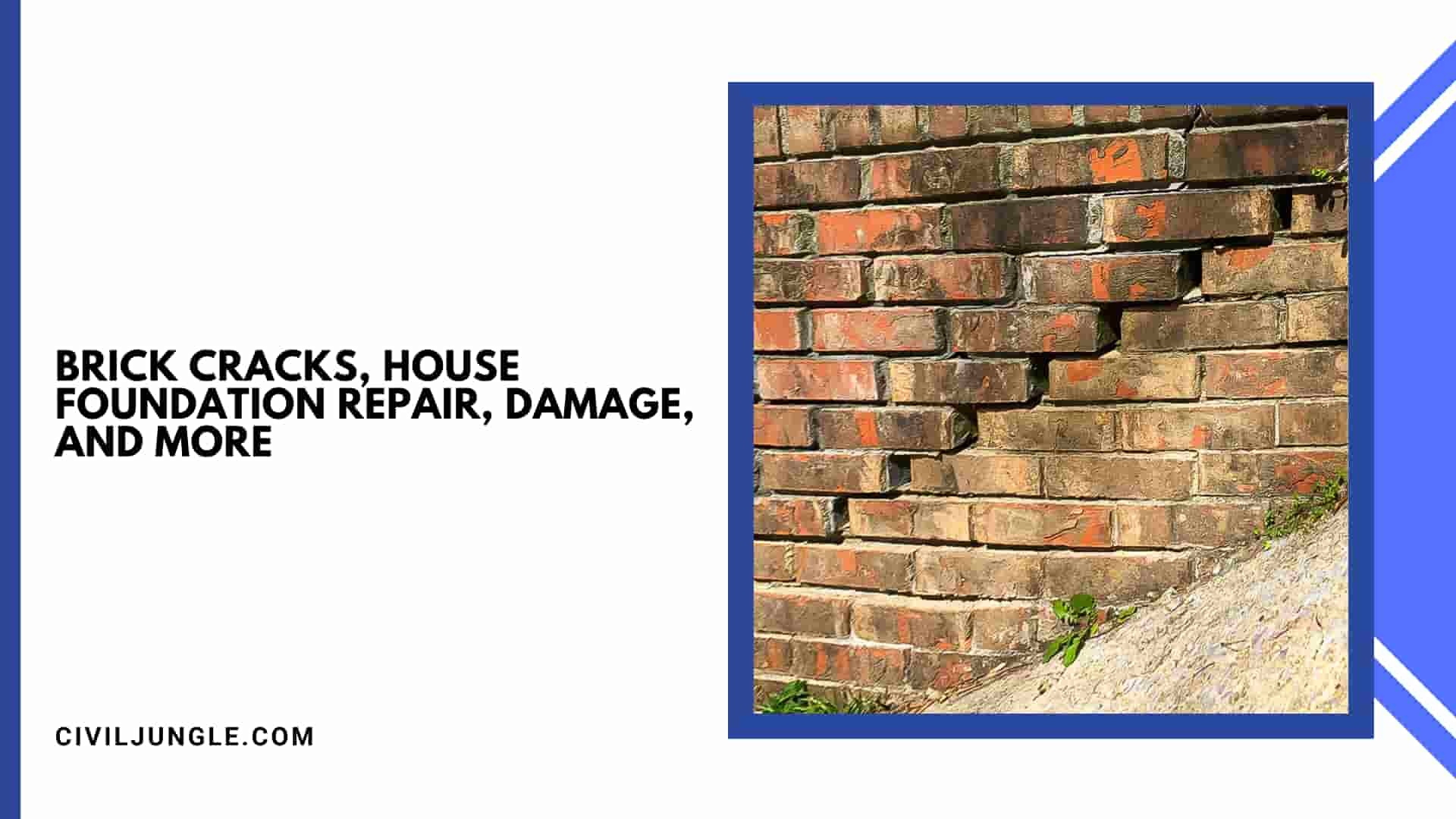
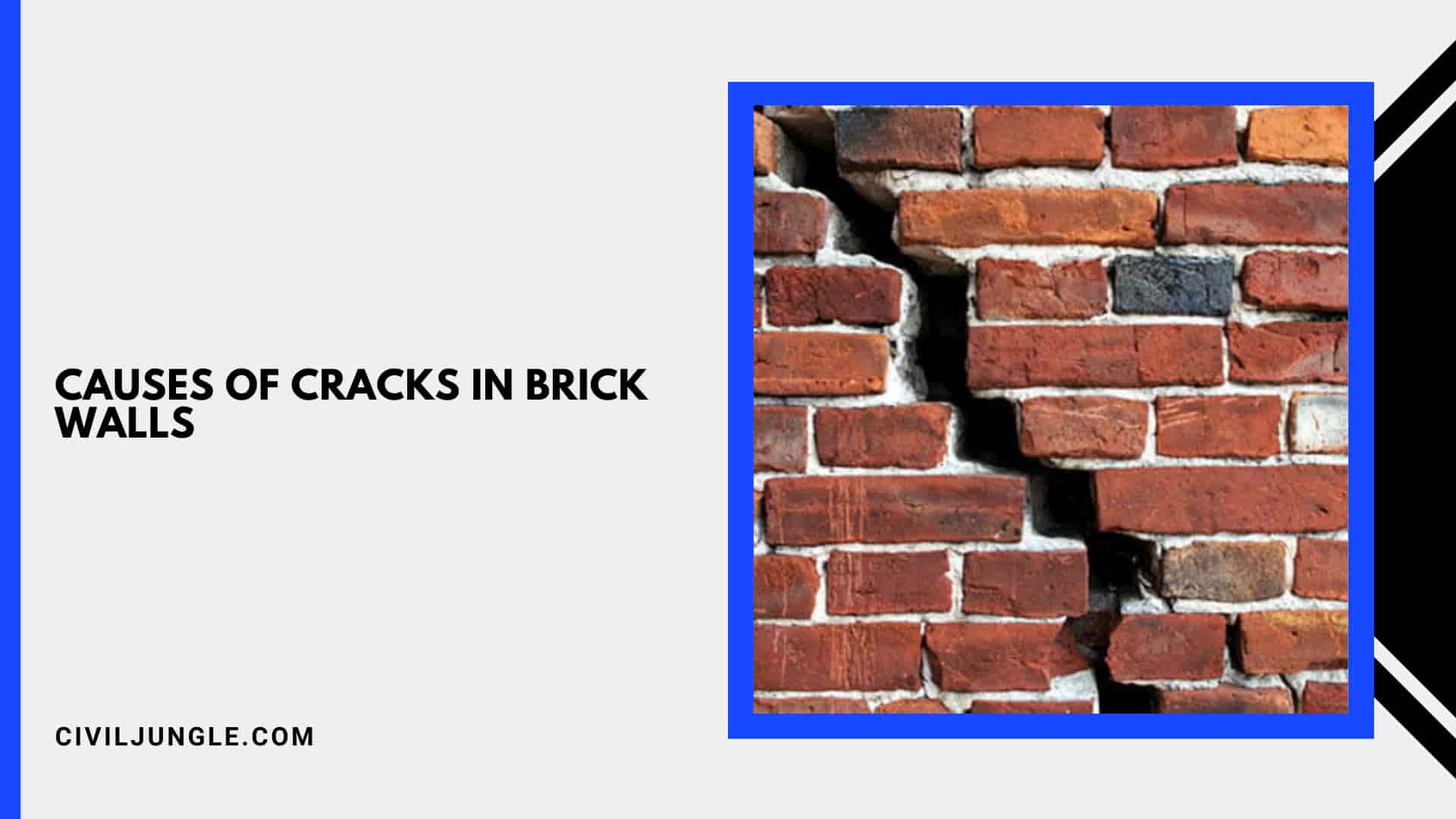
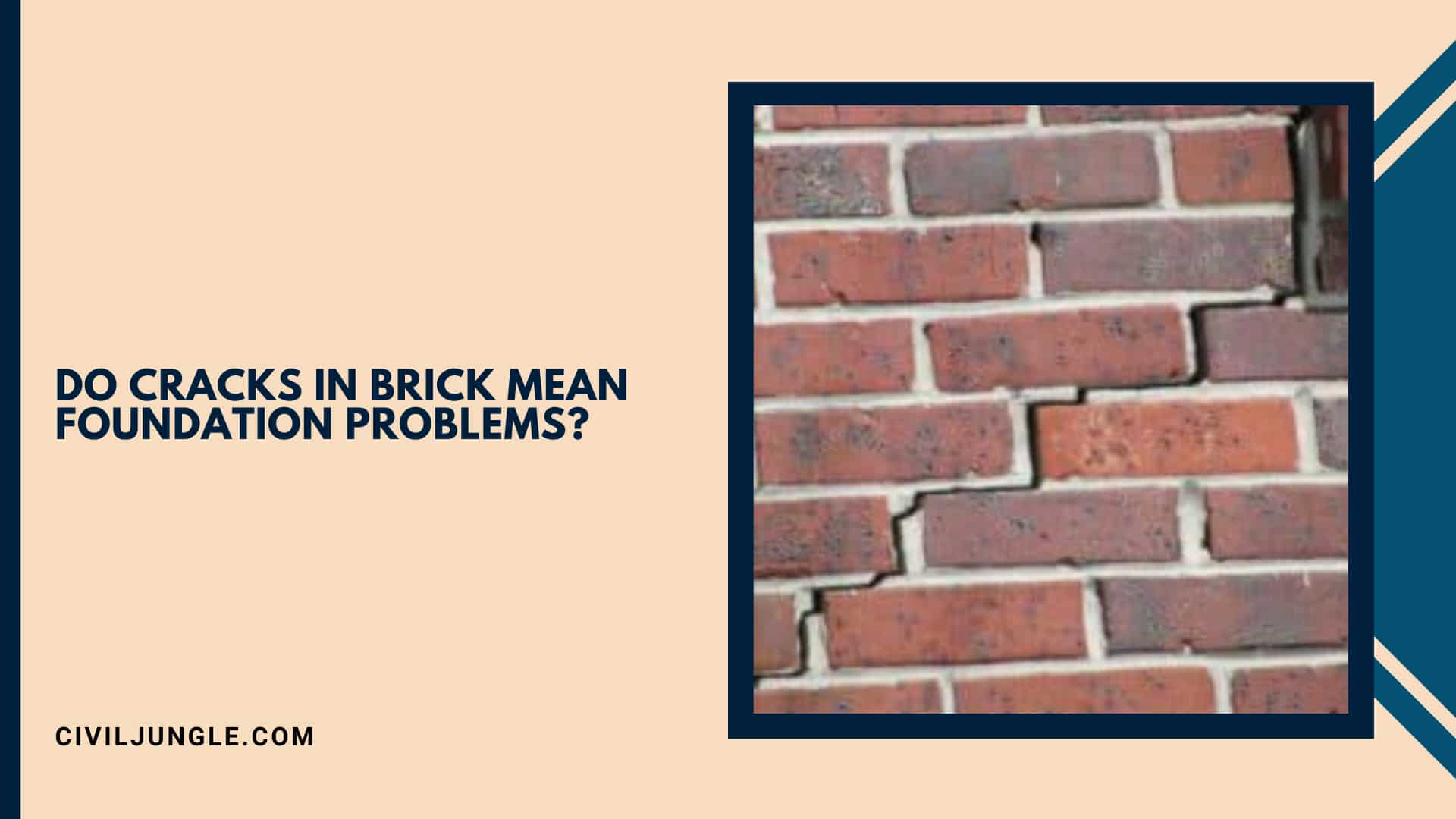
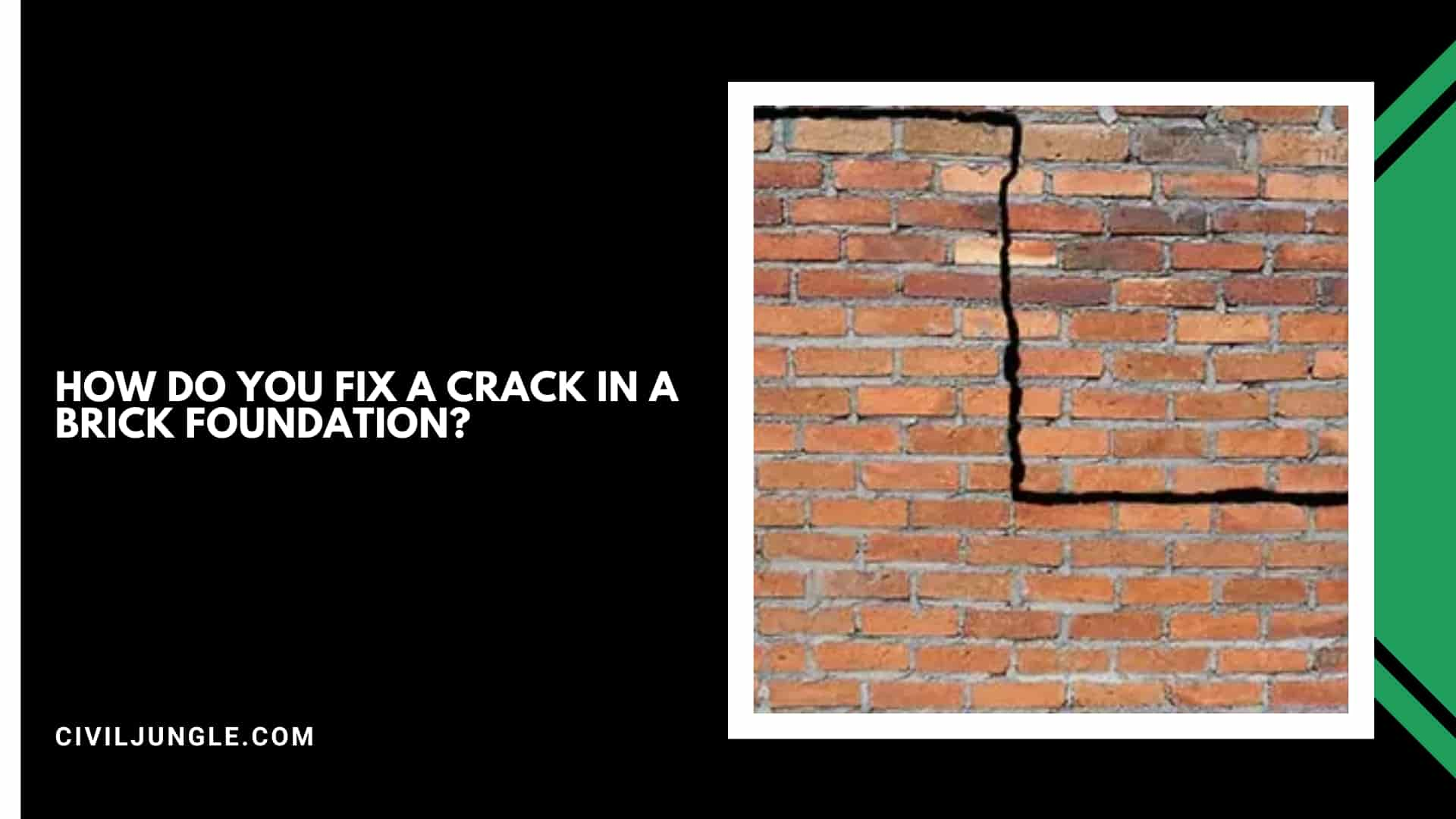
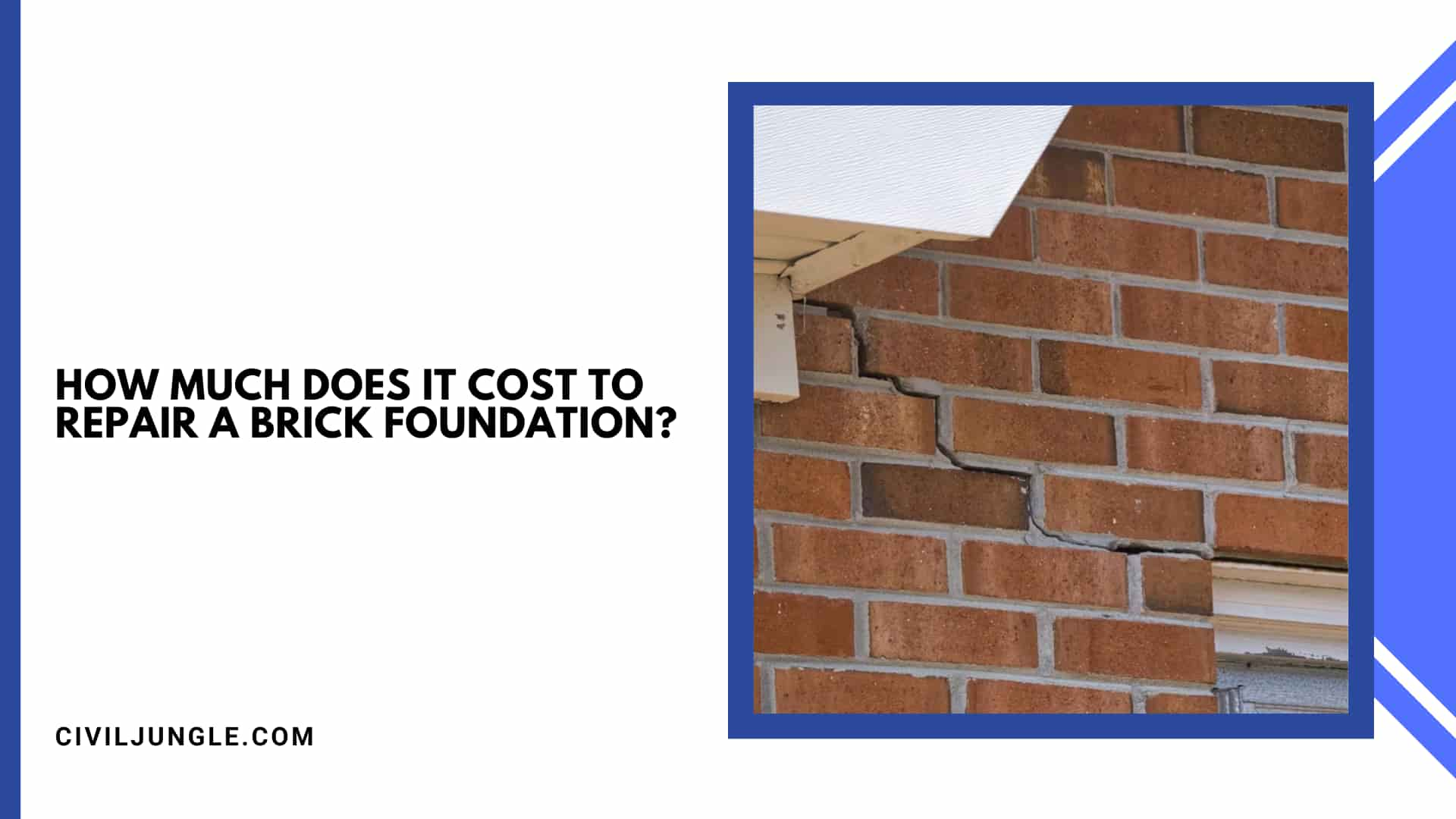

Leave a Reply